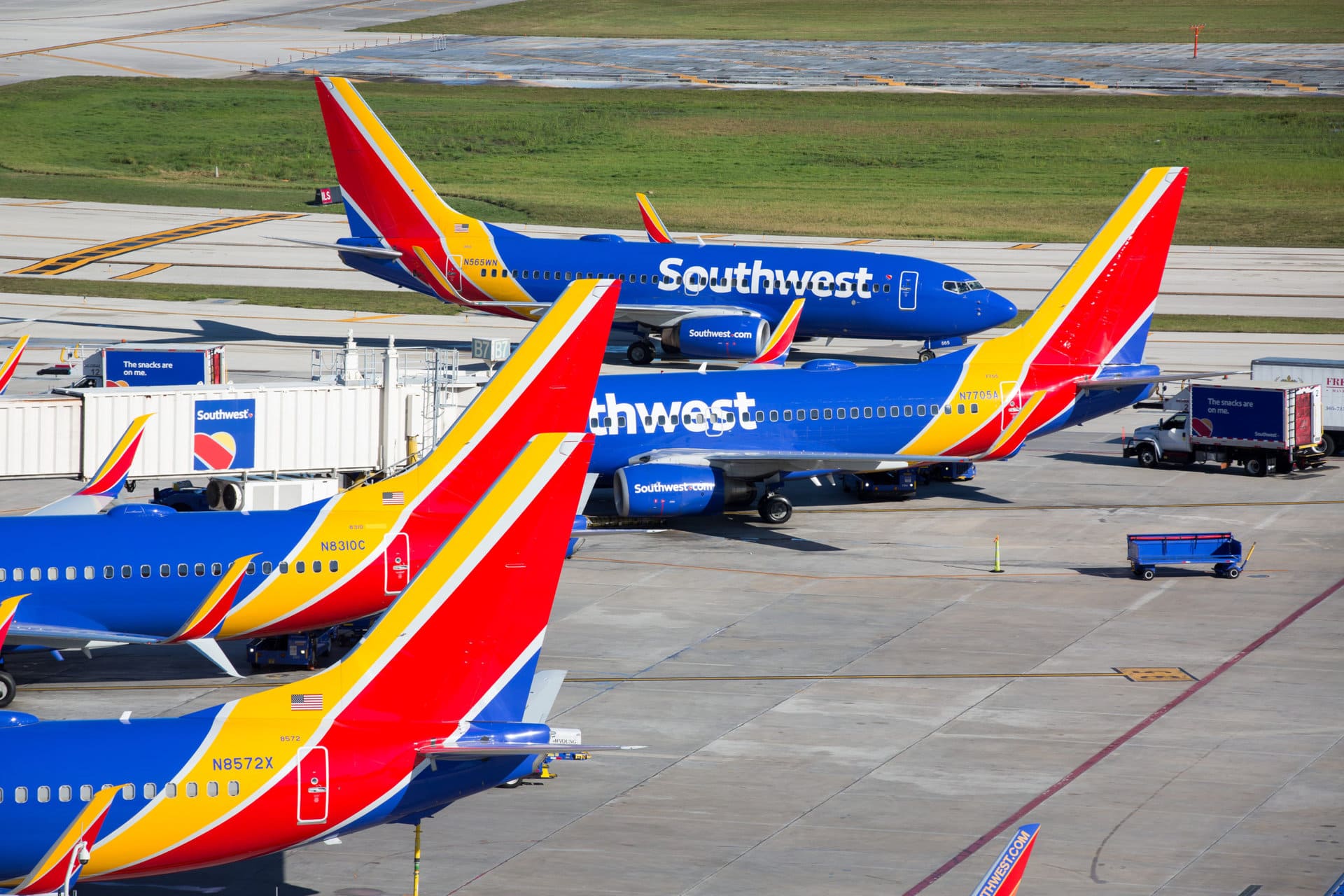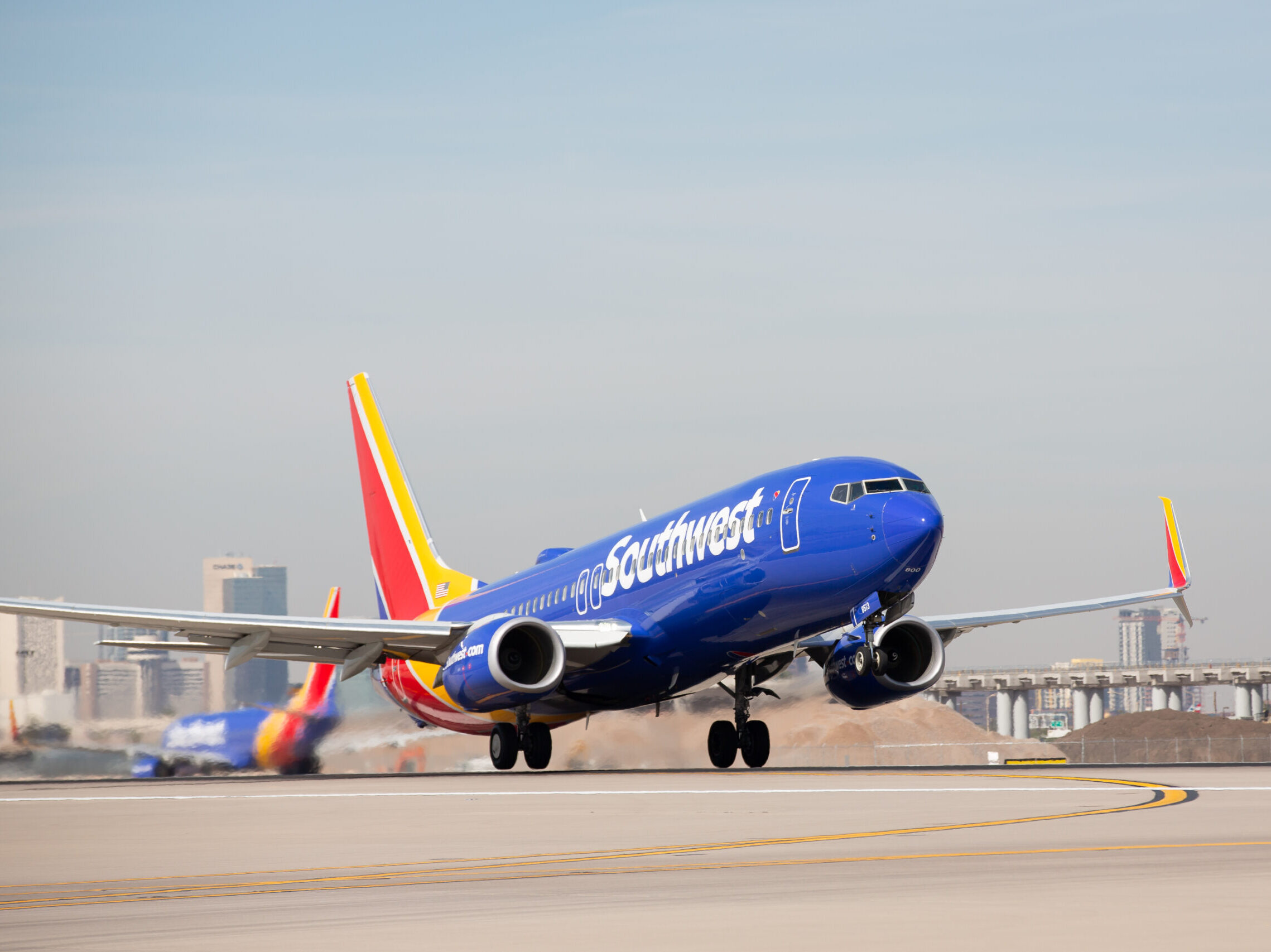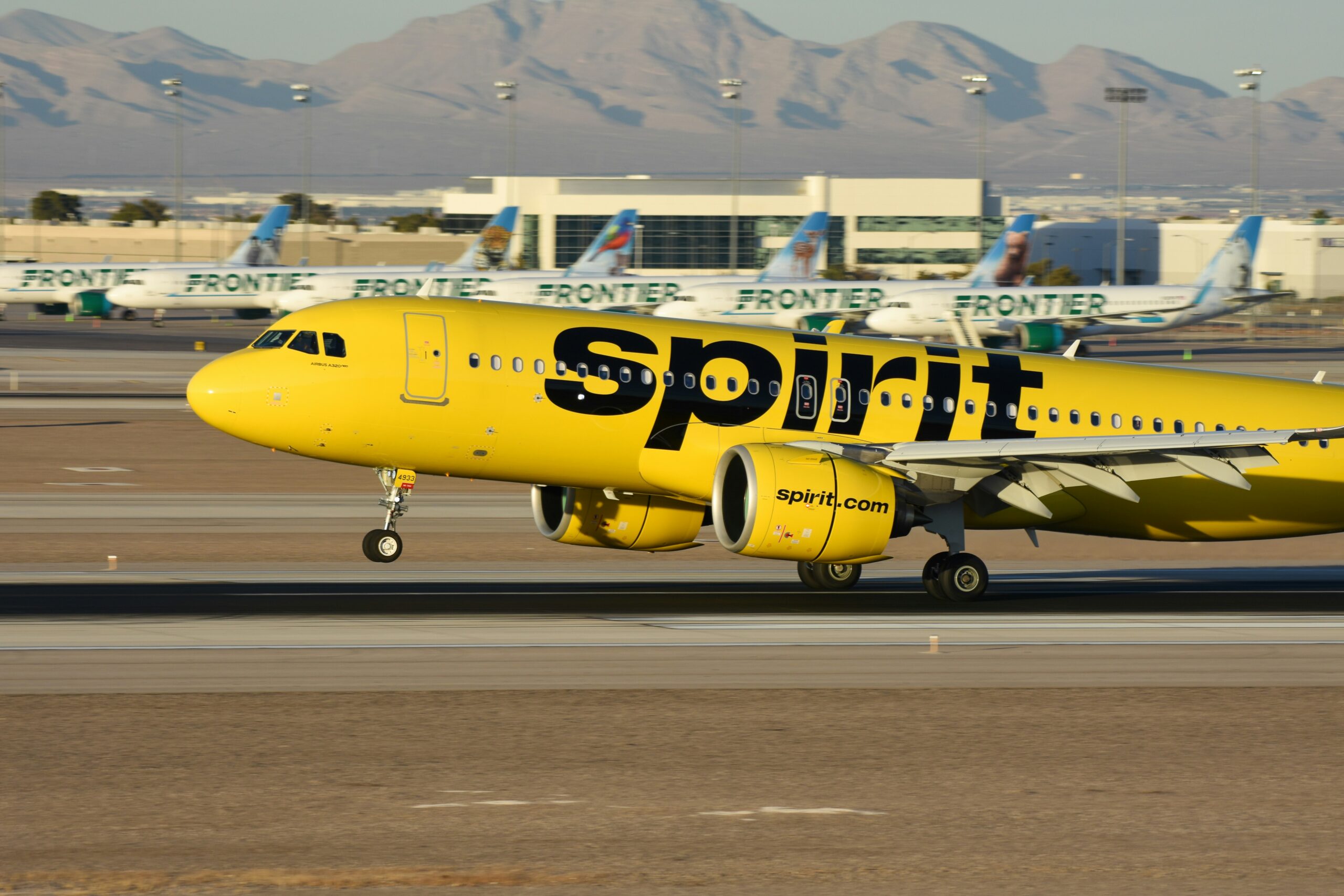The End of Expiration-Free Travel Credits: How Southwest is Changing the Game Again
Travel credits will expire 6 or 12 months from the date the ticket was purchased, Southwest says
by Lauren Smith
April 15, 2025

Photo: Southwest Airlines hub at Fort Lauderdale-Hollywood. Courtesy of Southwest Airlines / Stephen M. Keller
Southwest Airlines drew headlines last month for scrapping its popular “bags fly free” policy. Not many people noticed that the airline also quietly announced the end of another customer-friendly perk: its expiration-free travel credits.
Southwest has long had fee-free changes, issuing travel credits, which it calls Travel Funds, equal to the original fare paid when travelers cancel flights. It was such a popular policy that rivals began copying it during the pandemic when many travelers worried a positive Covid test could derail their travel plans and leave them out of pocket.
In response, in June 2022, Southwest began issuing these travel credits without expiration dates. Passengers loved the policy, which meant they didn’t have to rush to claim the travel credits and could simply use them the next time they intended to travel.
New Expiration Policy
Southwest is now backtracking. For all tickets purchased or changed on or after May 28, any travel credits issued as a result of a cancellation or downgrade will come with an expiration date.
For travelers who purchased the cheapest “Basic” fares—a new entry-level fare type launching May 28—travel credits must be used within six months of the date you purchased the flight.

Photo: Courtesy of Southwest Airlines / Stephen M. Keller
For those on standard fares (that’s Business Select, Anytime, and Wanna Get Away Plus fares), travel credits expire 12 months from the date the flight is purchased.
It’s important to note that those expiration dates are based on when you purchased the flight, not when you were due to travel. So if you buy a Basic fare in advance and then cancel it six months later, you’ll receive no travel credit at all and will, instead, forfeit the price of the ticket.
The airline will continue to honor previously issued expiration-free travel credits. So, if you want more flexibility with an upcoming Southwest flight, you should book before May 27.
Impact on Customer Experience
The end of expiration-free travel credits means more heartbreak for Southwest loyalists, who’ve watched the Dallas Love Field-based carrier shed most of its lovable, customer-friendly quirks over the last few months.

Photo: Courtesy of Southwest Airlines
Starting May 28, most Southwest customers are no longer entitled to two free checked bags with their fare. The airline has previously promised to keep its “bags fly free” policy–one so central to its brand identity that it was painted on its planes and printed on in-flight napkins—amid the overhaul of its business model. But by March, Southwest had changed its tune, saying that bag fees could earn it big.
Later this year, the airline will start selling premium and assigned seating, with its famous open seating policy ending in 2026.
Shift in Strategy Amid Financial Pressures
Observers attribute the changes to the intervention of Elliott Investment Management, which took a greater than 10 percent stake in the airline last summer. Known for pushing for dramatic changes in the companies in which it invests, the hedge fund has drawn attention to Southwest’s declining profits. After 47 consecutive years in the black, the airline has struggled to turn a substantial profit since the coronavirus crisis.

Photo: Bob Jordan, CEO at Southwest Airlines. Courtesy of Maria Nieto, Southwest Airlines, 2024
CEO Bob Jordan, who narrowly escaped a boardroom coup orchestrated by Elliott, has said the airline needs to make changes to “return to the levels of profitability that both we and our shareholders expect.”
While it might alienate some budget-conscious loyalists, Southwest is hoping to replace them with bigger spenders and business travelers, now catered to with premium seating and red-eye flights.




